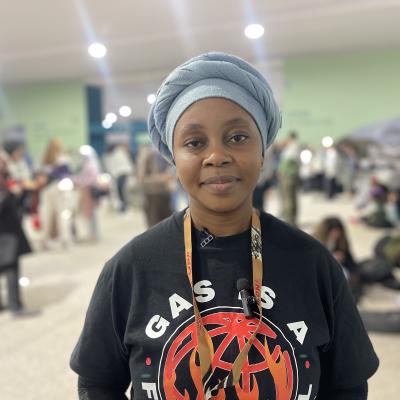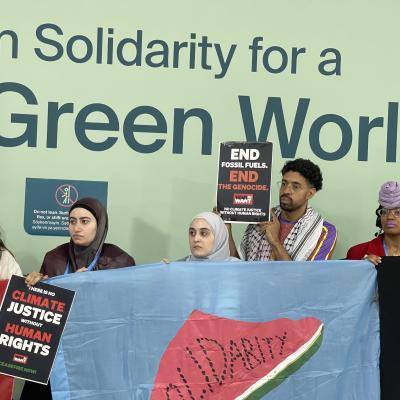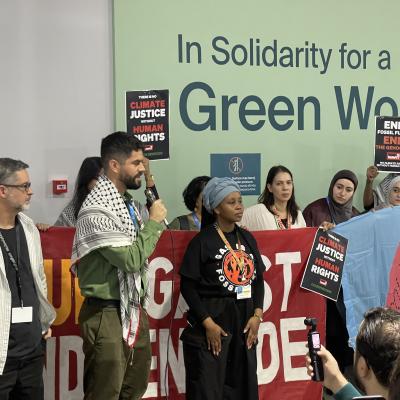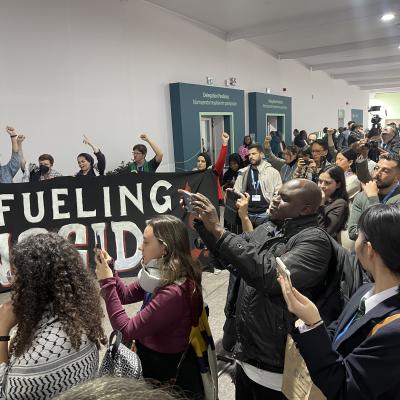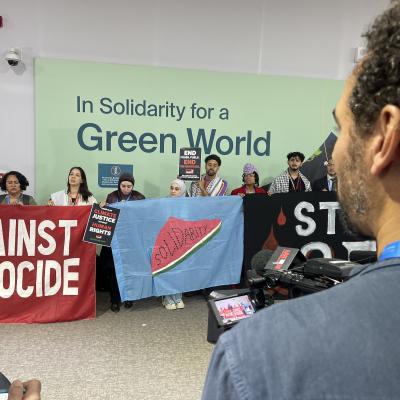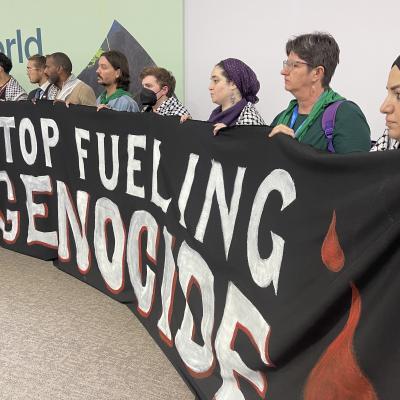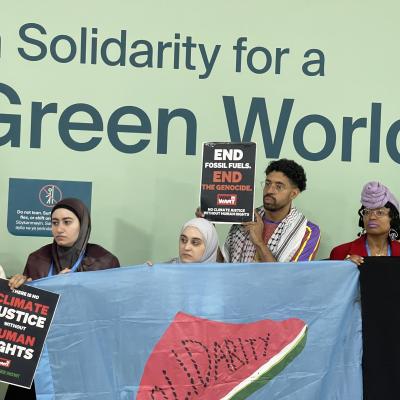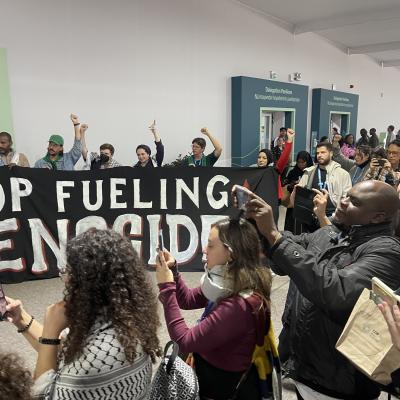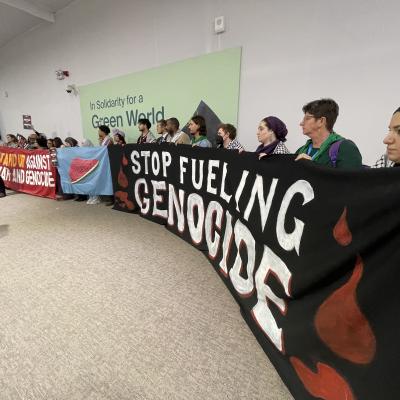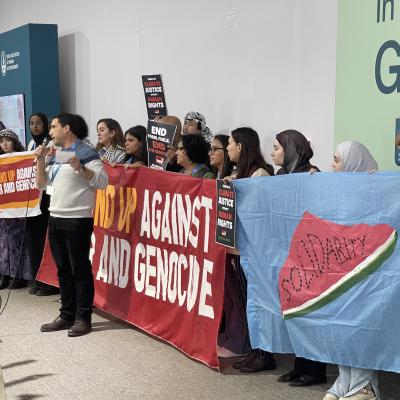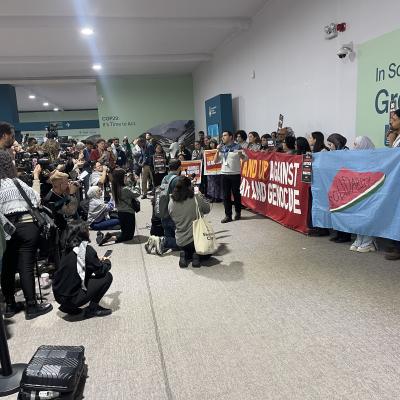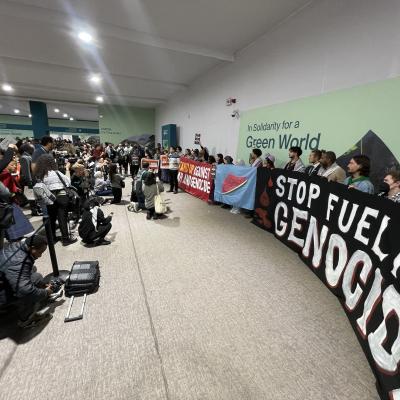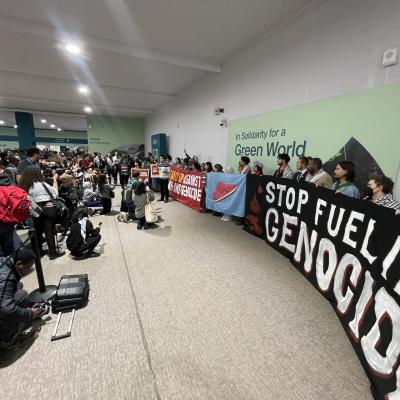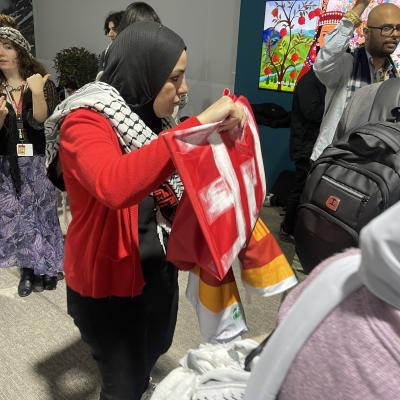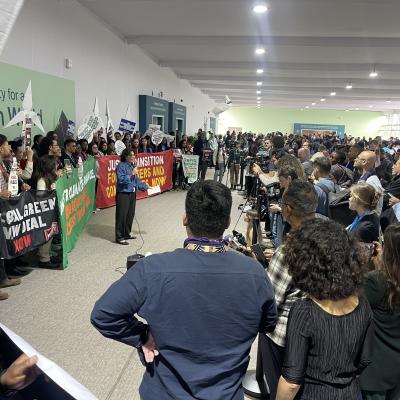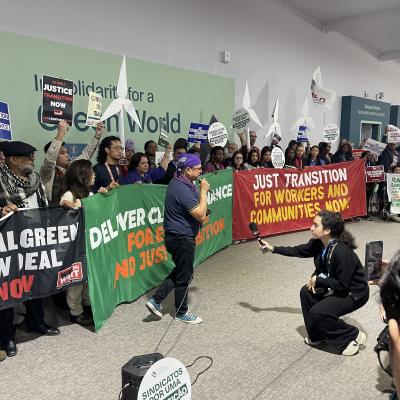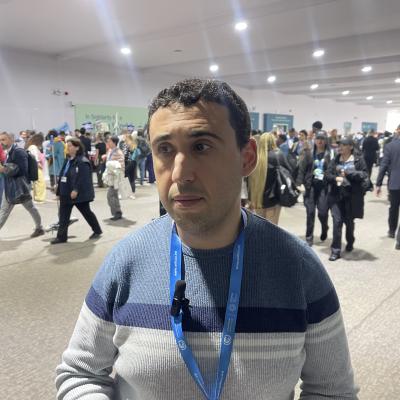Baku, Azerbaijan – By Munjed Jado, PNN Correspondent for the COP29 Climate Summit
From the moment we, as Palestinian and Arab journalists, set off to cover the COP29 Climate Summit in Baku, Azerbaijan, we sought to highlight Palestine’s presence at this global event. The first day of the summit saw a significant protest calling for a ban on energy supplies to Israel.
Hundreds of climate activists gathered in a designated protest area, holding banners and signs condemning Israel’s continued crimes against the Palestinian people. They called on countries, including Turkey, Brazil, and South Africa—nations that claim to support Palestinians—to halt the supply of fuel to Israel, as it is used in military operations targeting Palestinian civilians and their homes.
Akram Al-Khalili, a Palestinian activist with the “Ban Energy to Israel” campaign, told PNN that the initiative aims to challenge the policies of countries that criticize Israel yet continue to supply it with essential resources, particularly energy. He emphasized that the campaign sends a clear message to these nations’ leaders about the importance of stopping energy supplies to the Israeli occupation.
“Countries like Turkey, South Africa, and Brazil must be held accountable for their actions,” said Al-Khalili, noting that activists from these nations participated in the campaign, urging their governments to cease energy exports to Israel. He expressed hope that the protest’s message would reach the summit’s leadership and prompt these countries to take action to end the supply of energy to Israel and pressure it to stop the war.
Abeer Al-Batma, a Palestinian environmental activist and coordinator for Friends of the Earth International, highlighted that the protest was organized with the participation of hundreds of activists from international organizations. She stated that the event aimed to draw attention to the use of energy in committing acts of genocide and war crimes, stressing the need to halt such supplies to bring an end to the war.
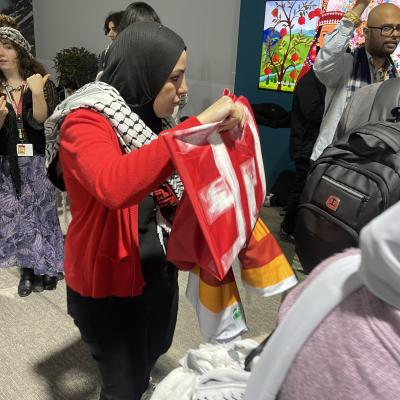
The campaign, held at the heart of the summit’s activity center, garnered significant Arab and international support from human rights organizations. Organizers stressed that nations claiming to support Palestine must match their words with actions, particularly by cutting off energy supplies that enable Israel to kill Palestinians, destroy homes, and displace communities.
Algerian activist Yahya Al-Jaza’iri, a member of the Arab grassroots delegation at the summit, affirmed the Arab group’s solidarity with Palestine. “We are here at the Climate Summit, and yet we are prevented from naming the barbaric killers responsible for these massacres, even from naming their victims. To the conference organizers, this is a great shame,” said Al-Jaza’iri.
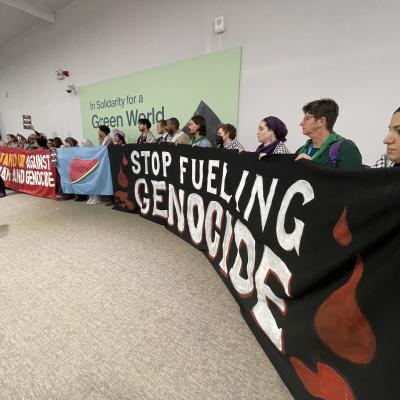
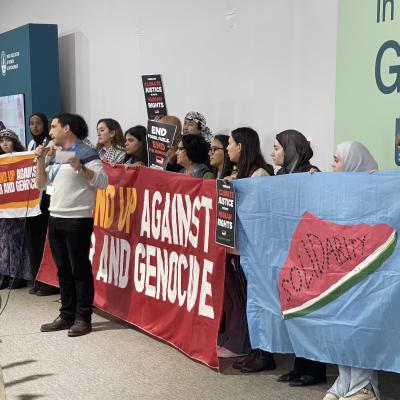
Colombian activist Gina Cortez, also part of the “Ban Energy to Israel” campaign, told PNN that she and hundreds of other volunteers stand firmly in solidarity with Palestine, condemning Israeli terrorism.
“We stand here in support of the Palestinian people, as well as the Lebanese and Sudanese, because the international system responsible for oppressing these peoples is the same system that silences us and controls the policies of this climate conference,” said Cortez.
She added, “I come from Colombia, a country that has banned the export of energy to perpetrators of massacres. We cannot justify these actions under the guise of economic interests. These atrocities must stop, and we are here because we demand justice for Palestine and its people.”
Katrana Cardiszen, representing Friends of the Earth International, called for an immediate ceasefire and an end to the massacres being committed by Israel.
In an interview with PNN, Cardiszen stated that Friends of the Earth International is urging countries that shield Israel from accountability and supply it with weapons to act decisively. “Through our marches, we demand that the international community take immediate steps to stop the massacres by all possible means,” she said.
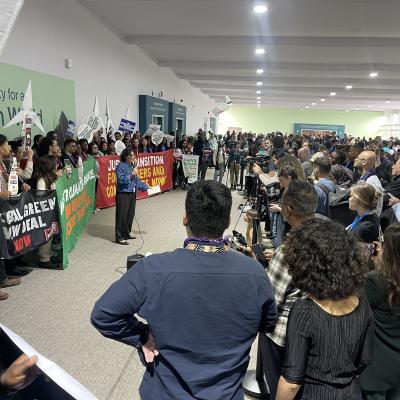
Numerous activists from countries targeted by the campaign also voiced their concerns, demanding their governments halt energy supplies to Israel. Among them was South African activist Mokojana Karapawa, who criticized her country’s political double standards.
In an interview with PNN, Karapawa emphasized that South Africa cannot maintain contradictory positions. “We have taken Israel to the International Criminal Court for its atrocities, yet we continue to supply it with energy,” she said.
Karapawa noted that activists gathered at the Climate Summit to oppose the massacres and the killing of Palestinians. “At the same time, we allow energy to flow to Israel, enabling its military to commit these atrocities. We must align with our primary stance, which is holding the criminals accountable, as evidenced by our decision to approach the International Criminal Court,” she added.
This story was produced as part of the Qarib program, implemented by the French Agency for Media Development (CFI), in partnership with and funded by the French Development Agency (AFD).
